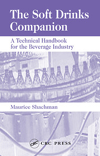PepsiCo and Pepsi Bottling Group announced a plan this week to invest $1 billion in Russia over three years. The companies say that brings their cumulative investment in Russia to more than $4 billion as part of the effort to expand in emerging markets.
"This investment reflects very clearly our great confidence in Russia and our long-term commitment to this very important market," PepsiCo Chairman and Chief Executive Officer Indra Nooyi said in a statement.
Nooyi is in Russia this week to open a new bottling plant outside Moscow, and to join a meeting of business leaders convened by Presidents Medvedev and Obama. The company says the investment in Russia will be used to expand manufacturing and distribution capacity. In addition to the new beverage facility opening this week in Domodedovo, a new snack manufacturing plant is expected to open later this year in the southern city of Azov.
PepsiCo and PBG say they also are planning to build a state-of-the-art warehousing and distribution infrastructure for the Lebedyansky juice business.
"Russia is a very attractive growth market," said PBG Chairman and Chief Executive Officer Eric Foss. "The investments we're making in our Russia business are creating new jobs, providing us with the flexibility to produce a wider range of beverage offerings for consumers, and enabling us to better serve our valued retail partners. Our new plant in Domodedovo reflects our serious commitment to future expansion in Russia. We're looking forward to playing an active role in the country's business community for many years to come."
When operating at full capacity, the Domodedovo plant will be larger than any bottling plant in PepsiCo's global system. It will produce a range of beverage brands, including Pepsi-Cola, Aqua Minerale water and ready-to-drink Lipton Iced Teas. The plant features a state-of-the-art water filtration system that uses ozone molecules for purification. It also is the first PBG plant in Russia equipped to produce ultra-light PET plastic bottles on all bottling lines, with labeling technology that uses no glue, less plastic and less energy than traditional labels.

